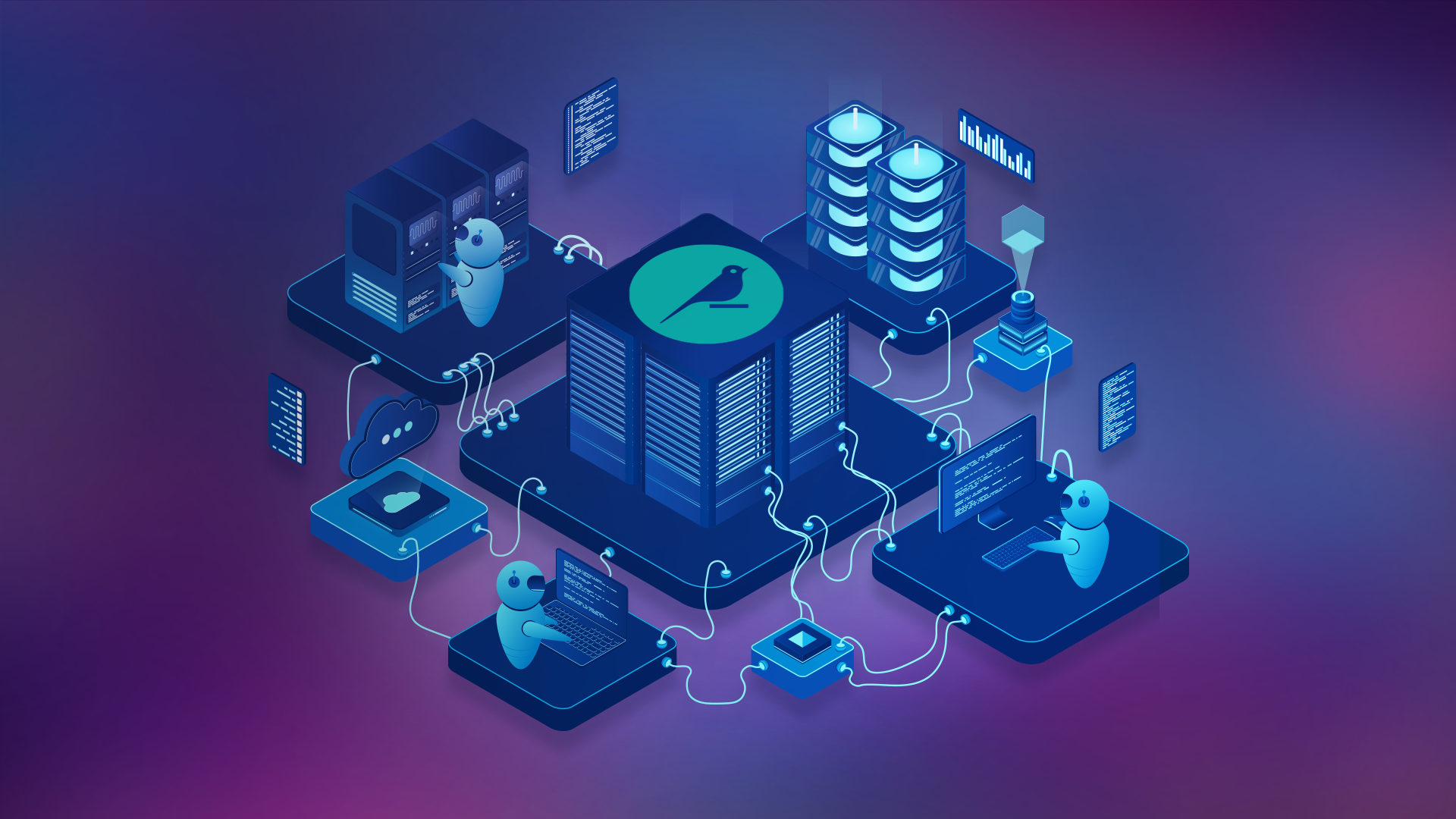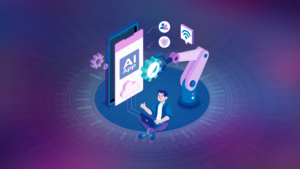Data pipelines are the backbone of any robust data strategy, enabling the seamless flow of information from raw data to actionable insights. However, traditional data pipelines often face challenges in scalability, efficiency, and accuracy due to their reliance on manual processes.
This is where Machine Learning (ML) automation steps in, transforming data pipelines by enhancing speed, reducing errors, and enabling continuous optimization. Dataiku, a leading platform in data science, machine learning, and AI, offers powerful tools to automate and streamline data pipelines, making it easier for organizations to scale their data operations and derive meaningful insights with minimal manual intervention.
The Challenges of Traditional Data Pipelines
Traditional data pipelines often rely heavily on manual processes, which can introduce inefficiencies and increase the risk of human error. Tasks such as data cleaning, transformation, and integration are time-consuming and prone to mistakes, leading to inconsistencies in data quality. As organizations grow, so do their data volumes, and manual processes struggle to keep up. Scaling these pipelines to handle large, complex datasets becomes a significant challenge, often requiring additional resources and extensive reconfiguration.
Moreover, maintaining and updating traditional data pipelines is resource-intensive. Each modification or update to the pipeline can require substantial time and effort, from adjusting scripts to managing dependencies. This not only slows down the data processing but also diverts valuable resources from more strategic activities.
ML Automation in Dataiku
1. Automated Data Preparation
- Reduced Manual Intervention: Dataiku automates data preparation tasks such as cleaning and transformation, minimizing the need for manual input.
- Faster Processing: Automation speeds up the entire data preparation process, resulting in quicker, more consistent data readiness.
2. Smart Pipelines
- Dynamic Adaptation: Dataiku’s smart pipelines automatically adjust to changes in data, ensuring that processes remain efficient and accurate without requiring manual updates.
- Error Reduction: By automating adaptations, these smart pipelines significantly reduce the risk of errors that are common in manual processes.
3. Seamless Integration of ML Models
- Continuous Learning: ML models can be easily integrated into Dataiku pipelines, enabling ongoing learning and model updates as new data becomes available.
- Enhanced Agility: This seamless integration allows data pipelines to evolve dynamically, improving their ability to meet the organization’s changing needs while maintaining high performance.
Recommended Read: AI/ML Model Deployment Made Easy with Dataiku and v4c.ai
Key Features of Dataiku’s ML Automation
1. Visual Flow Interface
- Simplified Design: Dataiku’s visual flow interface provides an intuitive, drag-and-drop environment that simplifies the design and management of automated data pipelines. Users can easily map out complex workflows, connect data sources, and integrate various processes without needing to write extensive code.
- Enhanced Usability: The interface allows both technical and non-technical users to collaborate effectively, making it easier to visualize and understand the flow of data throughout the pipeline. This visual approach reduces the learning curve and accelerates the development of robust data workflows.
2. AutoML and Predictive Analytics
- Building and Testing Models: Dataiku’s AutoML capabilities streamline the process of building machine learning models by automating key steps like feature selection, model training, and hyperparameter tuning. This allows data scientists to focus on fine-tuning models and interpreting results rather than spending time on repetitive tasks.
- Seamless Deployment: Once models are built and tested, Dataiku enables seamless deployment within the pipeline. Predictive analytics can be applied in real-time, ensuring that the most up-to-date insights are continuously integrated into the pipeline, driving more accurate and timely decision-making.
3. Scalability and Flexibility
- Handling Large Datasets: Dataiku’s platform is designed to scale effortlessly with growing data volumes. Whether dealing with terabytes of data or a few gigabytes, Dataiku maintains high performance, ensuring that pipelines run efficiently regardless of the dataset size.
- Customization Options: The platform offers flexibility for customization, allowing users to tailor pipelines to specific business needs. Whether integrating custom code, leveraging advanced algorithms, or adapting workflows, Dataiku provides the tools necessary to create highly specialized solutions.
4. Collaborative Environment
- Cross-Functional Collaboration: Dataiku fosters a collaborative environment where data scientists, analysts, and engineers can work together seamlessly on automated pipelines. The platform supports version control, shared projects, and real-time collaboration, ensuring that team members can contribute and review work without duplication or conflict.
- Streamlined Communication: By centralizing workflows and providing transparency into each step of the pipeline, Dataiku enhances communication across teams. This collaboration not only improves the quality of the data pipelines but also speeds up the overall development process, leading to faster deployment and iteration.
Benefits of ML Automation in Data Pipelines
1. Increased Efficiency
- Time and Effort Reduction: ML automation significantly reduces the time and effort required to manage data pipelines. By automating repetitive tasks such as data cleaning, transformation, and integration, teams can focus on more strategic activities. This leads to faster processing times and quicker delivery of insights, accelerating the overall data lifecycle.
- Streamlined Workflows: Automation helps in creating streamlined workflows that run with minimal human intervention, ensuring that data pipelines operate smoothly and efficiently from end to end.
2. Improved Accuracy
- Minimizing Errors: ML algorithms can consistently apply complex data transformations and checks, which reduces the likelihood of human error. This leads to more accurate data processing, improving the overall quality and reliability of the data outputs.
- Enhanced Consistency: Automated processes ensure that data handling is consistent across the pipeline, which is crucial for maintaining data integrity and producing reliable analytical results.
3. Scalability
- Adapting to Data Growth: Automated pipelines are designed to scale effortlessly with the growth of data. Whether dealing with large datasets or increasing data complexity, ML automation ensures that pipelines can handle the additional load without compromising performance.
- Flexible Infrastructure: With scalable automation, organizations can easily adapt their data infrastructure to meet increasing demands, allowing for continuous data flow and processing even as the volume of data expands.
4. Cost Savings
- Operational Efficiency: By reducing the need for manual intervention and minimizing errors, ML automation can lead to significant cost savings. Less time spent on manual data management translates into lower labor costs and more efficient use of resources.
- Long-Term Savings: Automation also reduces the need for costly infrastructure upgrades or additional staff to manage data pipelines, providing a more sustainable and cost-effective approach to data management over time.
Implementation Strategy: Step-by-Step Guide to ML Automation in Dataiku
Step 1: Assess Your Current Data Pipeline
- Evaluate Existing Workflows: Start by thoroughly assessing your current data pipelines. Identify manual processes, bottlenecks, and areas where automation could be most beneficial.
- Set Clear Objectives: Define what you aim to achieve with ML automation, such as improving efficiency, scaling operations, or enhancing data quality.
Step 2: Prepare Your Data
- Data Collection: Ensure that all relevant data sources are integrated into your pipeline. Dataiku supports a wide range of data connectors, making it easier to pull data from various sources.
- Data Quality Check: Conduct an initial data quality assessment to identify and clean any inconsistencies or errors before introducing automation.
Step 3: Design the Automated Pipeline
- Leverage Dataiku’s Visual Interface: Use Dataiku’s drag-and-drop visual flow interface to map out your automated pipeline. Start by automating basic tasks like data cleaning and transformation.
- Integrate ML Models: Incorporate ML models into the pipeline using Dataiku’s AutoML tools. These models can be used for tasks such as predictive analytics, classification, or anomaly detection.
- Customize and Optimize: Tailor the pipeline to your specific needs by customizing workflows, integrating custom scripts, or using advanced Dataiku features like smart pipelines.
Step 4: Test the Automated Pipeline
- Run Simulations: Before going live, test the pipeline with historical data or in a controlled environment to identify any potential issues.
- Monitor Outputs: Carefully review the pipeline’s outputs to ensure that the automation is functioning as expected and delivering accurate results.
Step 5: Deploy and Monitor
- Deployment: Once the pipeline has been tested and refined, deploy it into your production environment.
- Continuous Monitoring: Set up monitoring and alert systems to track the performance of the automated pipeline. Regularly review the pipeline to ensure it continues to meet your objectives.
Step 6: Iterate and Improve
- Collect Feedback: Gather feedback from users and stakeholders to identify further opportunities for optimization.
- Continuous Improvement: Use insights gained from monitoring and feedback to make ongoing adjustments, refining the pipeline for better performance and scalability.
Common Pitfalls and How to Avoid Them
1. Inadequate Data Preparation: Spend ample time on data preparation before automating. Ensure that your data is clean, consistent, and well-structured to avoid issues down the line.
2. Overcomplicating the Pipeline: Start simple and gradually introduce complexity as needed. Focus on automating the most critical tasks first before adding additional layers of automation.
3. Lack of Proper Testing: Thoroughly test your automated pipeline in a controlled environment before full deployment. Simulations and pilot runs can help identify and address potential problems.
4: Ignoring Scalability Needs: Plan for scalability from the outset. Use Dataiku’s flexible and scalable tools to ensure your pipeline can grow with your data needs.
5. Insufficient Monitoring: Implement robust monitoring systems to track the performance of your pipeline. Regular reviews and real-time alerts can help catch issues early and keep the pipeline running smoothly.
Future of Data Pipelines with ML Automation
Emerging Trends
- Real-Time Data Processing
- Immediate Insights: Businesses are increasingly demanding faster insights, leading to a critical focus on real-time data processing.
- Role of ML Automation: Automation enables real-time analytics by automating data ingestion, transformation, and analysis, allowing for quicker, data-driven decisions.
- Edge Computing
- Localized Data Processing: With data generated at the edge (e.g., IoT devices), processing data closer to the source is becoming essential.
- Benefits of ML Automation: Automation in edge computing environments allows for faster decision-making with reduced latency, crucial for industries like manufacturing and healthcare.
- AI-Driven Data Governance
- Automated Compliance: As pipelines grow more complex, AI-driven governance ensures data quality, privacy, and compliance.
- ML’s Role: Machine learning algorithms automatically enforce policies, monitor data quality, and maintain compliance with regulations like GDPR and CCPA.
- Increased Adoption of No-Code/Low-Code Platforms
- Democratization of Data Science: No-code/low-code platforms are gaining traction, enabling users with varying technical expertise to manage data pipelines.
- Ease of Use: Platforms like Dataiku make automation accessible across different roles, speeding up development cycles and broadening participation.
Recommended Read: MLops: Powering AI ML Success
The Evolving Role of Data Professionals
- Shifting Skill Sets
- From Routine to Strategic: As ML automation takes over manual tasks, data professionals focus on advanced algorithm design, data interpretation, and ethical AI usage.
- New Knowledge Areas: Professionals need a deeper understanding of machine learning concepts, AI ethics, and domain-specific knowledge.
- Focus on Innovation
- Strategic Initiatives: With more time freed up, data professionals are expected to drive innovation, develop new data products, and explore emerging technologies like AI and blockchain.
- Market Differentiation: This focus on innovation is crucial for organizations aiming to stand out in a competitive landscape.
- Collaboration and Cross-Functional Skills
- Interdisciplinary Work: Collaborative platforms like Dataiku require data professionals to work closely with IT, marketing, and operations teams.
- Blending Skills: Success now requires strong communication skills and a broad understanding of business impacts, blending technical and business acumen.
- Continuous Learning and Adaptation
- Staying Current: The rapid pace of advancement in ML and AI necessitates continuous learning to stay relevant.
- Leveraging New Tools: Ongoing education allows data professionals to fully harness ML automation and drive innovation in pipeline management.
Final Thought
ML automation in Dataiku offers a transformative approach to managing data pipelines, enhancing efficiency, accuracy, and scalability while reducing operational costs. By automating routine tasks and integrating smart, adaptive models, Dataiku empowers organizations to easily handle complex data needs.
The platform’s intuitive interface and collaborative environment further streamline pipeline management, making advanced data science accessible to all. To fully realize these benefits, explore Dataiku’s powerful features and consider integrating ML automation into your workflows.
Start your journey today by exploring Dataiku’s resources or scheduling a demo to see the platform in action.






